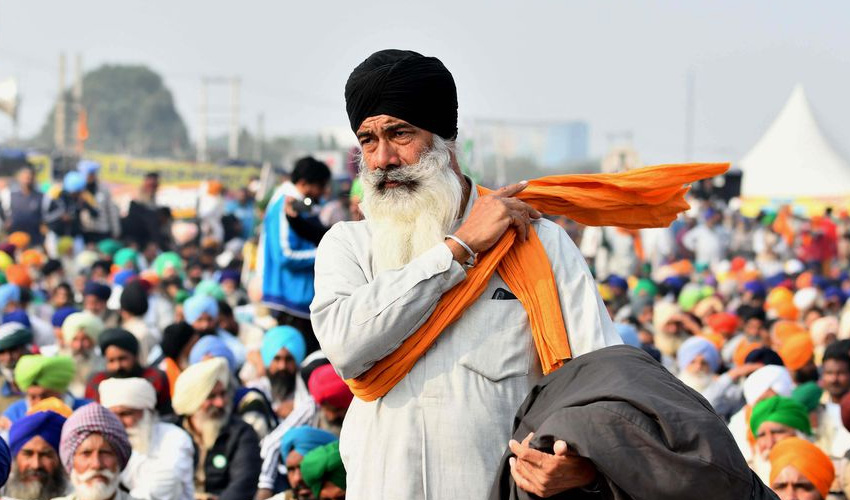In a bid to seek higher prices for their crops, Indian farmers have decided to postpone their planned protest march to New Delhi as talks with government officials persist. The postponement comes as both sides aim to reach a peaceful resolution to the ongoing dispute.
Agriculture Minister Arjun Munda, accompanied by Commerce Minister Piyush Goyal and Minister of State for Home Affairs Nityanand Rai, engaged in discussions with representatives of the farmers' unions on Thursday.
Following the meeting, Minister Munda expressed optimism, stating, "We believe we will all find a solution together peacefully."
Protest leader Jagjit Singh Dallewal confirmed the decision to hold off the march for the time being, emphasizing the importance of dialogue in moving forward. However, he asserted that the protest would continue in a peaceful manner until a resolution is reached.
The farmers' demand for a minimum price for their produce has been a focal point of the protest. Despite facing obstacles from security forces about 200 kilometers away from the capital, the farmers have remained steadfast in their demands. Utilizing their farming equipment creatively, they have employed tactics such as using soaked jute vegetable sacks to contain tear gas canisters and employing blowers to disperse fumes.
Moreover, the protestors, including many veterans from various services, have demonstrated resourcefulness by utilizing sling shots and flare-guns against drones deployed by security forces.
The plight of the farmers reflects a broader concern over fair crop prices and financial instability within the agricultural sector. Balbir Singh, a participant in the protest, highlighted the struggles faced by farmers, stressing the urgent need for fair prices to sustain their livelihoods.
The protest, occurring just months before national elections, underscores the significant influence farmers wield as a voting bloc. Prime Minister Narendra Modi's government faces mounting pressure to address the grievances of the agricultural community amidst growing unrest.
As talks between the government and farmers continue, both sides remain entrenched in their positions. The outcome of these negotiations will likely shape the future trajectory of agricultural policy in India, with ramifications extending beyond economic concerns to political dynamics at play.



























